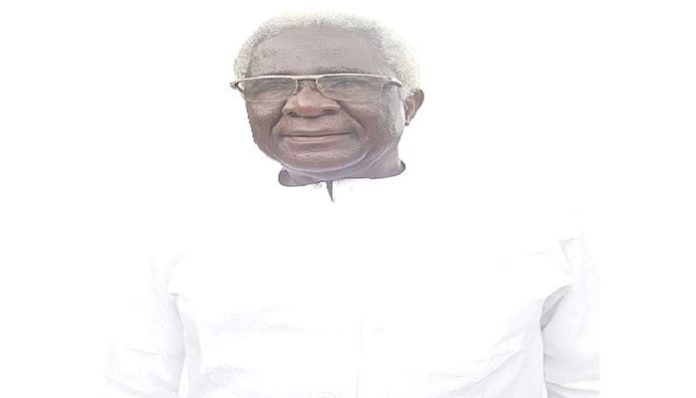

National President, Table Water and Beverage Producers Association of Nigeria, Prince Adeniyi Olukoya, talks to BANKOLE TAIWO on the continued fall in the value of the naira and its impact on the business
For how long have you been in this business?
I am the National President of the Table Water and Beverage Producers Association of Nigeria. This is a body that represents most water producers in the country. We process and package sachet and table water for the needs of the populace. We all know the importance of water, particularly very clean and germ-free water in our daily activities. I have been in the of processing and packaging water for about 22 years and we are still going strong despite the obvious odds of our nose-diving economy
How lucrative has the business been?
Well, in the past you could confidently say that at the end of the day that your labour had not been in vain, but that cannot be said to be the situation of things now because we are now subsidising what we produce and running at a loss.
What do you mean?
The forex crisis, which is hitting our economy so terribly, has affected our cost of production. We have some consumables like water filters and treatment plants and other things that we must use to enhance the quality of our products; quacks in the industry who are cutting corners may decide to do otherwise, but we can’t do that. Let me start with the least of them, the water filter that we use in our machines for filtration; the 11-inch type as of last year was N350, but it is now between N1,000 and N1,100, while the 22-inch type that was about N700 is now over N2,000.
A kilogram of printed rolls, which is the sachet that contains the water, as of last year was N1,400 but it is now N3,900. The bags that we normally use to pack the sachet water was N4,400, but today, it is as expensive as N17,000. The diesel we were buying at N600 per litre is now N1,600, while petrol that was N192 per litre is now N650, that is even if you are lucky to get it without having to queue. For the vehicles we use to distribute the water, the fairly used mini truck like Dyna 100 or 150, which was between N4m and N5m, is now between N9m and N11m; likewise the exorbitant prices of tyres and other spare parts. There is this mini bus called ‘Korope’, which we also found so useful and quite economical in distributing our products which as of last year was around N670,000, but it is now N3m.
The epileptic power supply is another problem entirely, so you are mostly running on generators using diesel or petrol for your production. The submersible pumping machine we were buying for N60,000 last year is now N240,000. Last year, the surface pump that will distribute the water around the compound was going for between N8,000 and N13,000 depending on the quality you’re buying, but today the least you can get is N150,000. So, how do you talk about making profit in this volatile situation? I won’t want to say we have been working at a loss, but rather say that we have somehow been subsidising the production just like the government was subsidising fuel, but we can’t continue to run the business this way.
So, where do you and your members go from here?
We are constrained to raise the prices of our products; the price hike is a child of necessity if we must remain in business. I forgot to inform you that the salaries of our workers too have to change considering how much they have to pay for transportation now as well as the continued rise in the prices of goods, most especially food. So, after a lot of deliberations, we have decided to increase the price of our bag of sachet water containing 20 sachets from N300 to N500, while our packs of water containing 12 bottles, which formerly was N1,300, now go for N1,500. It is painful but it is what we have to do to remain in business and make marginal profits to keep running the business and serve the people and of course not to throw out our workers.
The people should please bear with us and we are assuring them that once the prices of these things come crashing down, once this dollar galloping like a wild horse is tamed, it will definitely reflect in our pricing too. We are not shylocks and we can feel the pains of the people too in this hard time but if we must keep serving them and remain in business, we have to adjust the prices of our products.
Are you not worried about quacks taking advantage of the increase in price to further engage in sharp practices by offering untreated water even in bigger packages to unsuspecting members of the public?
Thank you for reminding me of this critical aspect of our discussion. Recently, in Ogun State, the Ministry of Environment announced the outbreak of cholera in a part of the state but when they went to do the analysis of the products of our members, we were not found culpable. Truly, there are many quacks out there who don’t care about water treatment to make it safe and germ-free. There are some that we have caught and reported to NAFDAC. These quacks will get the water from the borehole and just package it with no treatment; that is the water that comes in larger packages to attract people to buy.
NAFDAC approved that sachet water should come in a 50cl package, but you find these quacks packaging theirs in 60cl or 70cl. These people are indulging in these sharp practices because they want to sell at all cost, but we shall be on the lookout for them and report them to the appropriate quarters; our people too should be careful and wary about patronising these quacks. We may not be able to eliminate all the quacks, but their activities can be curtailed if we see something and say something.
Is there another association for sachet and table water producers in the country and do you compare notes?
Yes, we also have the Association of Table Water Producers, but we don’t compare notes; we are two independent associations with different constitutions and agendas.
How will you describe the contribution of members of your association to the country’s economy?
Our contributions are numerous; we are a major employer of labour by engaging the services of drivers, loaders, motor boys, packers, operators, and cleaners. We also contribute to the health sector by providing potable water; we contribute hugely to reducing communicable water borne diseases to the barest minimum, thereby saving the government huge sums of money; we employ so many vibrant youths and take off the streets those constituting nuisance to the public and law enforcement.
Is this the first time you have increased the prices of your products in the last year?
We had restrained our members from increasing prices all along, hoping that things would improve; the nylon producers have increased prices over 10 times, diesel prices have changed over eight times, and soft drink prices have gone from N100 to N350 over the same period.
In the face of the biting economy, what is your message to President Bola Tinubu?
The President should please be very aware that things are getting so tough for Nigerians; we are being driven towards the precipice; a lot of us are quite surprised with the way things are turning out. Yes, President Bola Ahmed Tinubu has some laudable programmes but the implementation of these initiatives calls a lot to question. My suggestion is this, let’s take a look at the food crisis in each of the 774 local government councils. We should create a market where people can register and get to buy food that has been subsidised by the government at cheaper prices. Now that the subsidy on fuel has been substantially removed, let the government begin to subsidise food. The President must as a matter of urgency help tackle this issue of hunger because a hungry man is an angry man.
Our governor, Dapo Abiodun, should help to bring succour to the people; the truth is that things are tough here. I heard the other time about two weeks ago when he said that his government had purchased 100 truckloads of rice to be sold at subsidised prices, but we have not heard anything about this laudable initiative again. Things like this should not be delayed because people are hungry; people need all the help that can be rendered now to douse the tension. After all, the report out there is that the Federal Government’s allocation to the state had jumped up since the fuel subsidy removal, so let the governor help the residents too with food palliatives.
But people are asking how long will the government distribute food palliatives, what about investment in agriculture?
I know that the Federal Government has deployed a lot of resources to boost food production but these are not what we can get on time. The fastest of these crops that we can get in three months is maize; yam is about seven months; cassava is within nine months to a year, so all of these food palliatives are just stop gap interventions pending when those being planted will be ready. This is the time to give serious thought to diversifying the economy; we have neglected agriculture for too long, and we need to go back to the basics. We must begin to encourage farming on a large scale; I am talking of mechanised farming to boost food production. We can no longer run away from this truth.
What other challenges are your members facing?
The issue of raw materials is quite critical because of the dollar that is now galloping away like a wild horse that needs to be tamed. A dollar now exchanges for between N1,600 and N1,700, and the effect is the skyrocketing prices of goods. The President and his team must rise up to the occasion; the rate at which the naira is suffering devastating devaluation is really a concern to everyone; something drastic should be done to make the naira bounce back.
How about power?
Another challenge is the epileptic power supply; it is sad what we are witnessing in this nation. I am even beginning to suspect that we might be dealing with some saboteurs as far as the issue of power is concerned because the generation that was around 7,000 megawatts has now come to below 1,000 megawatts; something is wrong somewhere. South Africa is generating over 40,000 megawatts, Egypt is generating around 70,000MW, even Libya with all the turmoil is generating sufficient megawatts, and so what is wrong here? We can’t lay everything at the doorstep of the government, we must be ready to be our brother’s keepers; when you see something, especially about those sabotaging the efforts, and we should blow the whistle.
I also want to suggest that we introduce the death penalty for economic saboteurs and let this be implemented diligently. I remember the days of the War Against Indiscipline during the military days of (Tunde) Idiagbon and (Muhammadu) Buhari; everyone adjusted because they were quite sure of getting punished if they flouted the decrees. When you got to the bank at that time, you knew that you had to join the queue to be attended to, not that you wanted to do things as you wished. We should just be ready to do the right thing and things will begin to fall in their right places.
If the naira fall continues with the attendant rise in the prices of things, will it not send small-scale business owners like those producing sachet and table water out of business?
With the current huge disparity between the value of the naira and actual economic activities, whatever little gains are recorded by small business owners are eroded, leaving us with no choice but to spend part of our capital to meet domestic obligations. With this development, most small business owners are at risk of losing their businesses to inflation. This is causing palpable fears among us.
Join Television Nigerian Whatsapp Now
Join Television Nigerian Facebook Now
Join Television Nigerian Twitter Now
Join Television Nigerian YouTUbe Now





